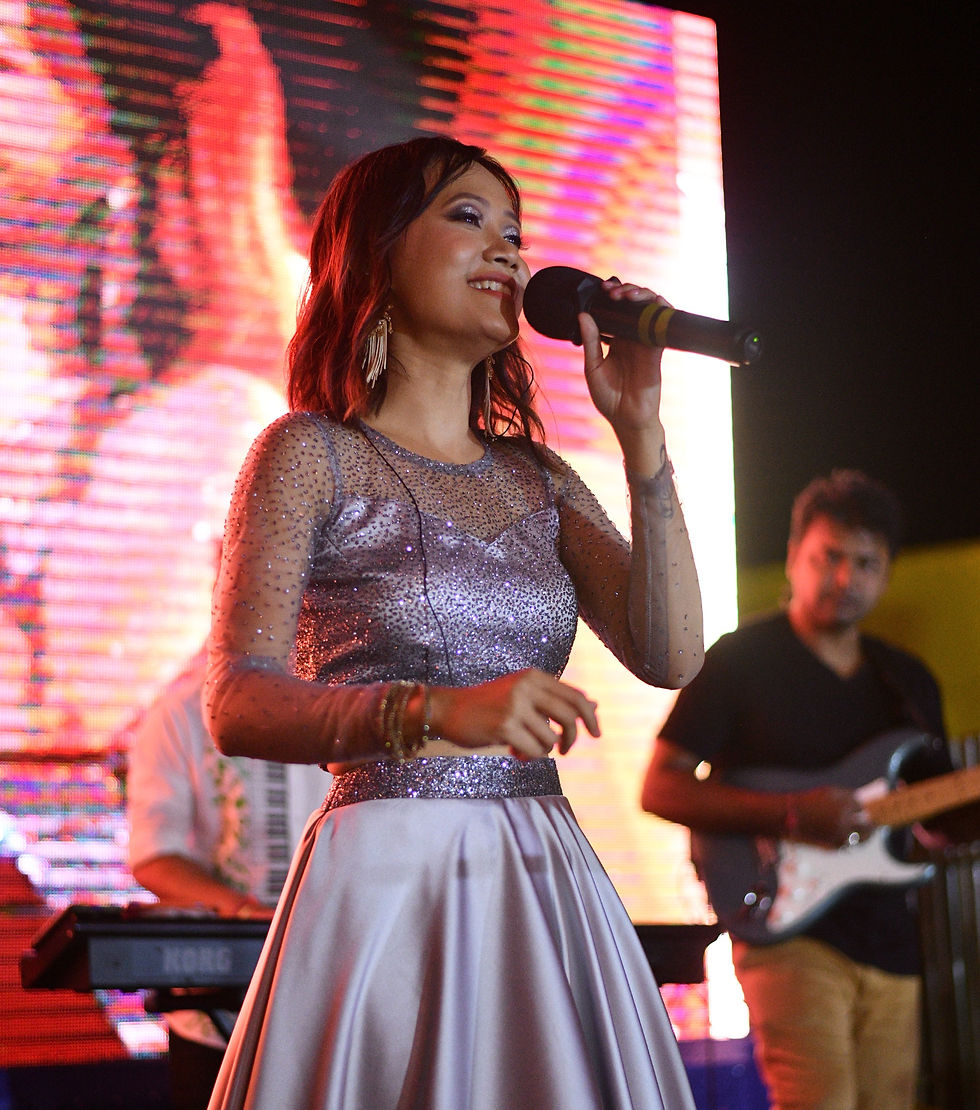Years After Indian Idol Win, Sourabhee Is Actively Making Songs In Her Indigenous Language
- Gobin Debbarma
- Mar 15, 2021
- 4 min read
Updated: Mar 19, 2021
Translated from Kokborok by Hamari Jamatia
Sourabhee Debbarma became a household name in 2009 when she was first seen on national television contesting for the Indian Idol 4 trophy. Born in Duhuram Sadar Kami which is about 45 km from Agartala, she first started acting and singing at the age of 4. As the years rolled by, she sharpened her skills and entered the contest that she eventually won, watched by millions of people.

Today, Sourabhee may not be very visible on national television but she has been working hard in the Kokborok music industry of Tripura where she regularly produces albums. Her first song was "Kungkila-ni Khorang". She followed it with “Teisa Made Malaino Malaiya” which was a big hit. So far she also has sung five non-filmy Hindi songs.

Today we talk to her to find out how, aside from trophies and recognition, music has stayed a constant in her life.
ALM: How did you get interested in music?
Sourabhee: As far back as I can remember, I always wanted to be a singer. I was constantly watching songs and humming along. Though it was never my plan to enter a reality singing contest, it was always a dream to sing.
ALM: How did you enter the Indian Idol contest?
Sourabhee: I was studying in Pune that year. My father had come to pick me up for my trip home. He surprised me by telling me that he had registered me for the Indian Idol 4 contest. That was how he paved the way for my entry into the show. Almost all the credit goes to my father for registering me as well as for making preparations for my audition that happened in Kolkata.
ALM: What was going through your mind when you won Indian Idol 4?
Sourabhee: When I went for my audition, I had no thought of winning the contest. I reached the audition venue at 7 AM and saw that there was a long line of people eager to get inside. Eventually I got an entry only at around 11 AM. So, at that time, I felt that the journey to the trophy was really far. Anyway, when my name was announced as the winner, I felt like I was in a dream. I came to my senses only the next day when many news channels began to carry the news of my win. Only then did the win really start to sink in.
ALM: Do you think music has any impact on people’s lives?
Sourabhee: Music is very important for our lives. The biggest example I can think of is how many people found peace in music during the Covid 19 lockdown. Our happiness and sadness are accompanied by the accompanying music. That’s why musicians and singers must be respected.
ALM: How much has the Kokborok music industry developed over the years?
Slowly but steadily our music industry is getting better. If I were to compare today’s technology to the time when I first started my music career, then of course our music industry has progressed in leaps and bounds. It is still behind other music industries in the country when it comes to music quality, video, and lighting, but there is no dearth of talent. There are many youngsters who are proficient in dance and music. They will surely reach new heights someday.
ALM: Where have you done live shows?
Sourabhee: Apart from Tripura and India, I have performed in Hong Kong, Nigeria, Durban, New York City, Singapore, Australia, Philippine, Italy, France, London, Kuwait, Bangladesh and Nepal. It gives me great happiness to perform in front of people and give them a moment of happiness.

ALM: Tell us about the time when you created a Guinness World Record?
I created the Guinness World Record in 2011 for singing while hanging upside down. At first I was very scared but I was also very determined to prove myself. I think my determination helped me in achieving that feat. I sang for 4 minutes and 30 seconds. Before me, the record was held by Rebecca Wright from New Zealand who sang for 3 mins and 53 seconds. After I broke the record I began to believe even more strongly that “If you really want something then nothing is impossible anymore”.
ALM: Tell us about your current work.
Sourabhee: Some of my songs are "Kungkila-ni khorang", "Nono sawi rikheba", "Tongtwtwi chatwtwi", "Kisa kisakhe" , "Omono de hin hamjak", "O ani bwkha", "Sairikni sal", "O ani bwkha", "On The Dance Floor," etc. My latest album is Yapri Sekha.

ALM: What is your latest Kokborok music video album- Yapri Sekha-about?
Sourabhee: “Yapri Sekha'' has actors Abhishek Jamatia and Priti Debbarma playing the lead in the music video. It has just been launched in March. The songs are sung by me and Tapas Debbarma. Through the title song we wanted to show the beauty of marriage even if it is arranged. Yepri Sekha means taking a step forward. Falling in love after marriage is also like that, a small step forward every day.
This article is created as a part of the Adivasi Awaaz project, with the support of Misereor and Prayog Samaj Sevi Sanstha

Comments